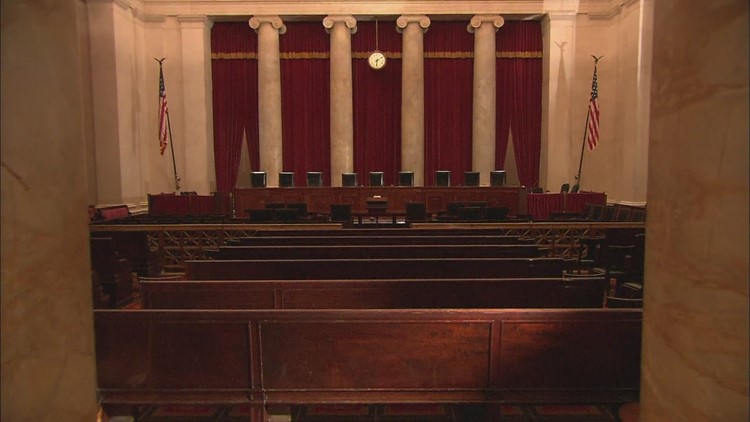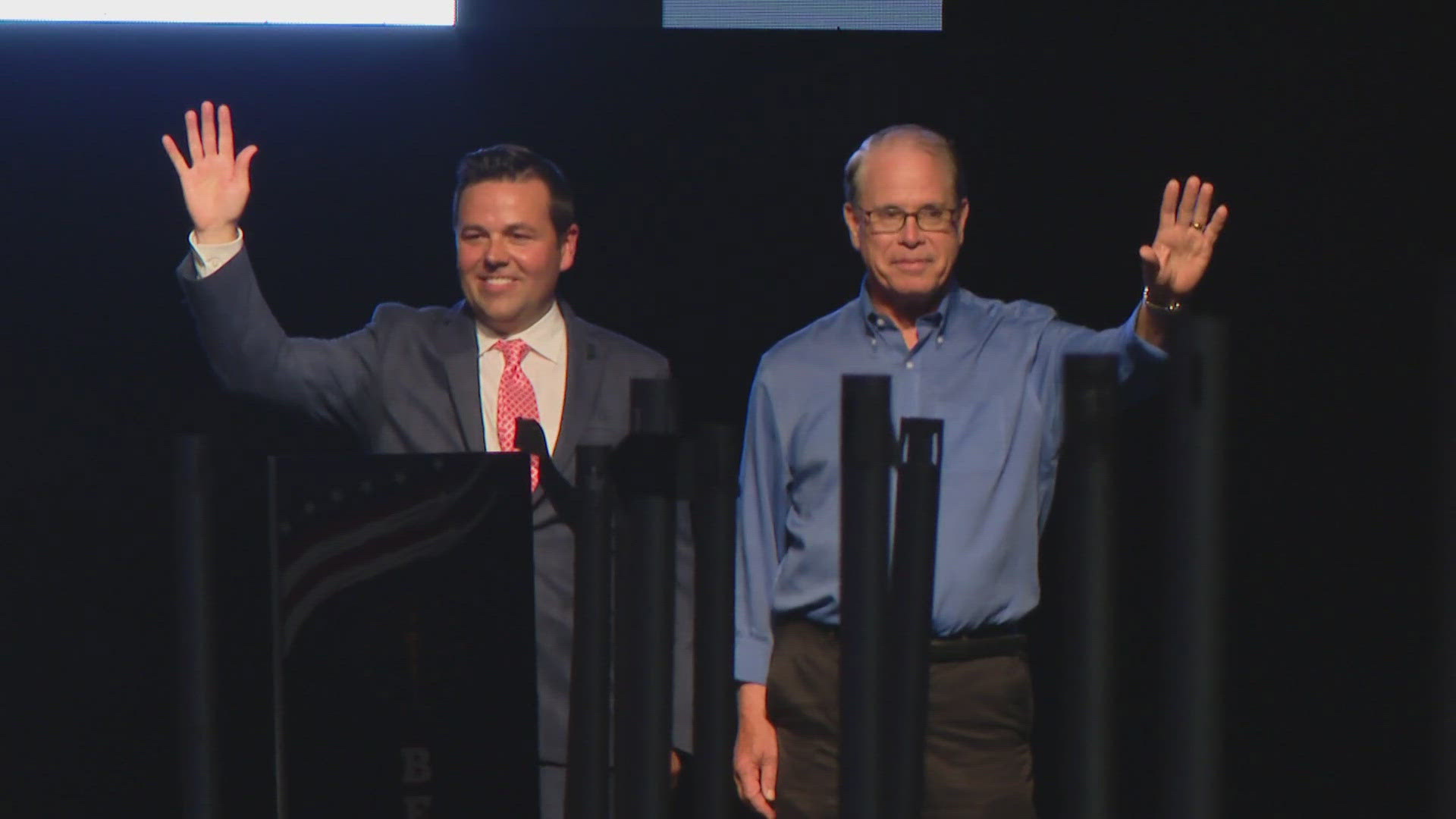INDIANAPOLIS — A decay is occurring in Indiana’s legal industry. Curiously, it comes during when two U.S. Supreme Court justices have Hoosier roots.
Chief Justice John G. Roberts grew up in Long Beach and attended high school in La Porte. Associate Justice Amy Coney Barrett taught law at the University of Notre Dame and lived in South Bend.
Having two Hoosiers on the Supreme Court should be a source of immense pride for our state. But in 2023, Gallup revealed that job approval and confidence in the high court have fallen to a historic low of 41%. “For just the second time in Gallup’s trend on trust in the judicial branch of the federal government headed by the Supreme Court dating back to 1972, less than half of Americans say they have ‘a great deal’ or ‘a fair amount’ of trust and confidence in it,” the polling firm reported.
A tell-tale sign of this decay comes as the legal profession is struggling in Indiana. State Supreme Court Chief Justice Loretta Rush described a “critical” attorney shortage, which is “especially acute” in rural areas. Indiana is among the bottom 10 states, with about 2.3 lawyers per 1,000 residents, compared to about 4 per 1,000 residents nationally, Justin Forkner, the Indiana Supreme Court’s chief administrative officer, told State Affairs.
This is occurring while news media court coverage has all but disappeared. I remember when journalists Bob Woodward and Carl Bernstein exposed President Richard Nixon’s Watergate scandal, leading up to a quickly heard and released U.S. Supreme Court decision on the smoking-gun audiotapes that prompted his resignation. Woodward and Bernstein created a surge in journalism school applications.
It’s curious that Chief Justice Roberts and Justice Barrett haven’t inspired a new generation of Hoosier legal scholars.
What’s going on?
Perhaps the Supreme Court is just another American institution under assault during former President Donald Trump’s war against what was once a conservative mooring, the so-called rule of law.
Trump has rhetorically gone after judges, prosecutors, the Department of Justice and the FBI over everything from the “witch hunts” he has described as prompting the 88 criminal charges he faces, to prosecutions surrounding the Jan. 6, 2021, U.S. Capitol insurrection, which have resulted in the convictions of more than 1,000 participants. If elected, Trump has vowed to pardon them.
Or, perhaps, the decay in Indiana’s legal industry stems from several justices’ conduct. Earlier this month, The New York Times reported that the Virginia home and New Jersey beach house of Justice Samuel Alito had an American flag hanging upside down and an “Appeal to Heaven” flags, both symbols of President Trump’s “Stop the Steal” campaign before, during and after the Jan. 6 insurrection.
“I had no involvement whatsoever in the flying of the flag,” Justice Alito said in a statement to The New York Times. “It was briefly placed by Mrs. Alito in response to a neighbor’s use of objectionable and personally insulting language on yard signs.”
“His statement — which says his wife displayed a symbol associated with a failed coup to subvert democracy because she was offended by an anti-Trump sign one of her neighbors displayed — is so incoherent it is insulting to our collective intelligence,” constitutional law professor Leah Litman told The Washington Post.
Margot Cleveland, writing for The Federalist, observed, “Nothing in these circumstances creates even the remote appearance that Justice Alito might hold a bias for or against the parties in the pending cases.”
Senate Republican Whip John Thune called the Alito flag situation “a bad decision,” telling CNN, “I don’t know how you explain that.” U.S. Sen. Lindsey Graham, the top Republican on the Senate Judiciary Committee, called it a “mistake.”
It has prompted Democrats and legal scholars to call for Justices Alito and Clarence Thomas to recuse themselves from upcoming SCOTUS decisions related to the Jan. 6 insurrection case and questions about presidential immunity that have been delayed. This situation plays into Trump’s legal strategy to delay his federal trials until after the November election.
Then there was the ProPublica report that Thomas failed to report two decades’ worth of luxury gifts from conservative Texas billionaire Harlan Crow. That revelation came on the heels of multiple reports that Justice Thomas’ wife, influential conservative activist Ginni Thomas, had supported Trump’s “Stop the Steal” movement.
Justice Thomas released this statement: “Early in my tenure at the court, I sought guidance from my colleagues and others in the judiciary, and was advised that this sort of personal hospitality from close personal friends, who did not have business before the court, was not reportable. I have endeavored to follow that counsel throughout my tenure, and have always sought to comply with the disclosure guidelines.”
It’s been almost three and a half years since a mob of Trump supporters overtook the U.S. Capitol. Trump has secured his third Republican presidential nomination, creating a rematch with President Biden in November.
While a verdict in Trump’s Manhattan campaign finance trial involving pornographic actress Stormy Daniels could come next week, American voters likely won’t have judgments from the Jan. 6 indictments in Washington or the classified document case in Florida. That’s a judicial tragedy, with the optics of sitting justices putting their thumbs on the scale (or dragging their feet), if nothing else than to delay the rule of law.
Brian Howey is senior writer and columnist for Howey Politics Indiana/State Affairs. Find Howey on Facebook and X @hwypol.



